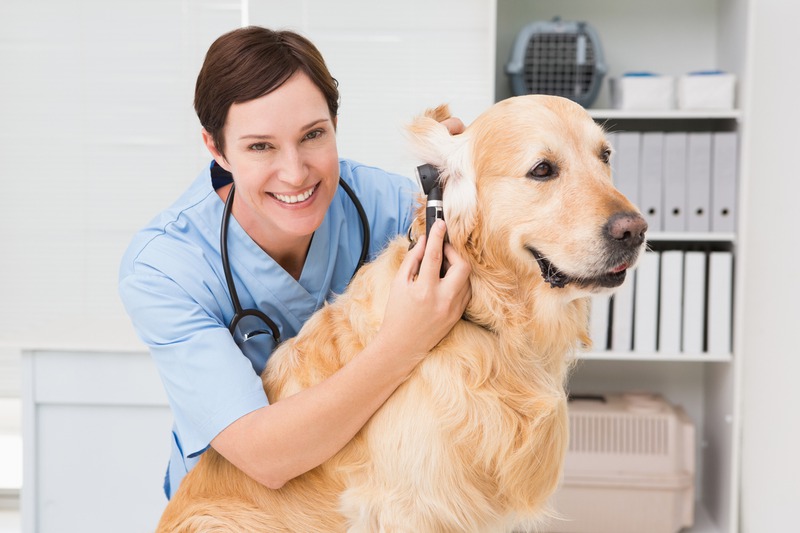As pet parents, we want our furry companions to live long, healthy, and happy lives. Recognizing the signs that something may be amiss with your pet is crucial. Knowing when to seek veterinary care can mean the difference between a minor issue and a life-threatening situation. It’s all about being observant and attuned to your pet’s usual behavior and physical health. So, let’s walk through the key indicators that it’s time to take your four-legged friend to the vet without delay.
Behavioral Changes
When your pet starts acting out of character, it’s a sign that they might need a professional dog or cat checkup. An energetic dog that’s now lethargic, or a cat that’s suddenly hiding all day, could be signaling that something is wrong. Keep an eye out for:
-
Decreased appetite or refusal to eat
-
Inexplicable aggression or irritability
-
Excessive licking, scratching, or biting of their body
-
Sudden accidents in the house from a previously house-trained pet
-
An overall change in activity level—either hyperactivity or sluggishness
Any of these could indicate pain, discomfort, or the onset of illness.
Physical Symptoms
-
Vomiting and Diarrhea: We’ve all seen our pets eat something they shouldn’t have, resulting in an upset stomach. Occasional vomiting or diarrhea isn’t uncommon and can sometimes be resolved with a diet change or simply time. However, if your pet is throwing up repeatedly or has persistent diarrhea, it’s time to seek help, especially if blood is present. These symptoms can lead to dehydration and may be signs of a more serious condition.
-
Respiratory Issues: If your pet is having difficulty breathing, coughing unusually, or making strange noises while inhaling, don’t hesitate—these are emergencies. Respiratory issues can quickly become critical, especially in brachycephalic breeds (like Bulldogs or Persian cats) that already struggle with breathing.
-
Sudden Weight Changes: Weight fluctuations in pets should always be noted. Sudden weight loss can signify a metabolic disorder, cancer, or chronic disease, whereas unexpected weight gain might mean hormonal issues or other underlying conditions.
-
Unusual Bodily Discharges: Keep an eye on your pet’s eyes, ears, and nose. Discharges that are pus-like, bloody, or oddly colored might signal infection or disease. Additionally, urine that’s cloudy or smells strong can indicate a urinary tract infection or kidney issues.
-
Difficulty with Mobility: Is your pet struggling to climb stairs or reluctant to jump or run? Arthritis, injury, or even tick-borne diseases could be to blame. Don’t write it off as normal aging—pain management and treatments are available, and sooner is always better when it comes to care.
-
Changes in Appetite and Thirst: It’s not normal for pets to suddenly stop eating or to start devouring their food more fervently than before. The same goes for drinking water. Increased thirst can be a sign of diabetes or kidney problems. Any abrupt change in consumption is worth a vet visit.
Preventive Care and Routine Checks
Routine preventive care is the cornerstone of good pet health. For example, making sure your furry friend is up-to-date with their cat or dog vaccinations in Banning, CA, is a vital part of responsible pet ownership. Vaccinations protect against a variety of diseases, some of which can be fatal or severely debilitating. There’s also the peace of mind that comes with knowing your pet is protected and less likely to spread diseases to other animals.
The Importance of Regular Checkups
In a similar vein, regular check up should be a part of your pet care routine. Cats are masters of hiding discomfort and pain, so these exams can uncover issues before they become significant problems. Preventative care, including vaccinations, flea and tick control, and annual check-ups, helps ensure pets lead the healthiest lives possible.
When Surgery Might Be Needed
There are instances when our pets might require more than just medications and rest. If you have a pet that’s suffering from a condition that isn’t improving with medication or changes in diet, it might be time to consult with a veterinary surgeon in Banning, CA. Surgery can be a daunting prospect, but in many cases, it can significantly improve your pet’s quality of life. Whether it’s to repair a broken limb or remove a tumor, surgical interventions often provide solutions where other treatments may fall short.
Final Thoughts
Caring for a pet means being attentive to their needs, much like caring for a family member. It’s crucial to watch for even the smallest changes in your pet’s behavior or health, as they depend on us to recognize when something is wrong. Since pets can’t speak, understanding their signs of discomfort is essential for timely care. If you see unusual behaviors or health issues, contact your vet immediately. Quick action can lead to a better outcome for your beloved pet. Keep watching and loving your pet to keep them healthy and happy.


